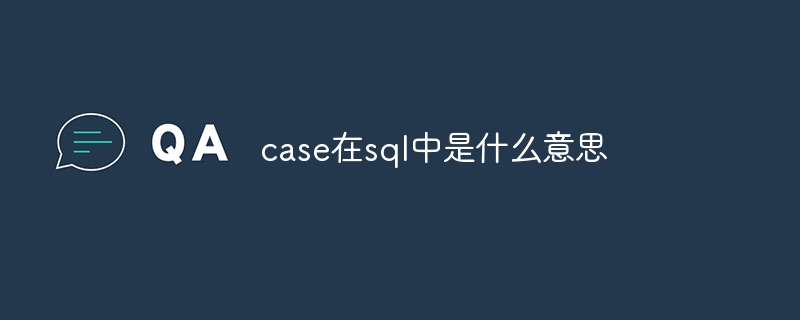The CASE statement is a SQL control structure that executes different SQL statements based on conditional expressions and returns results. The advantages include: providing conditional dynamic results, decomposing complex conditions, simplicity and efficiency.

The meaning of the CASE statement in SQL
The CASE statement is a SQL control structure that allows Conditions perform different actions. It executes a set of SQL statements based on one or more conditional expressions and returns a result.
Structure
The syntax of the CASE statement is as follows:
<code>CASE
WHEN 条件表达式1 THEN 结果表达式1
WHEN 条件表达式2 THEN 结果表达式2
...
ELSE 默认结果表达式
END</code>Usage
Example
SELECT CASE
WHEN age > 18 THEN '成年'
WHEN age < 18 THEN '未成年'
ELSE '非法年龄'
END AS age_category
FROM persons;Executing this query will set the age_category column to "adult", "minor", or "illegal age" based on each person's age .
Advantages
The main advantages of the CASE statement include:
The above is the detailed content of What does case mean in sql. For more information, please follow other related articles on the PHP Chinese website!
 SQL statement to backup database
SQL statement to backup database
 win10 bluetooth switch is missing
win10 bluetooth switch is missing
 Cancel WeChat campaign
Cancel WeChat campaign
 How to use group by
How to use group by
 Table average
Table average
 The difference between JD.com's self-operated and official flagship stores
The difference between JD.com's self-operated and official flagship stores
 What to do if the remote desktop cannot connect
What to do if the remote desktop cannot connect
 How to make gif animation in ps
How to make gif animation in ps
 vcruntime140.dll cannot be found and code execution cannot continue
vcruntime140.dll cannot be found and code execution cannot continue




